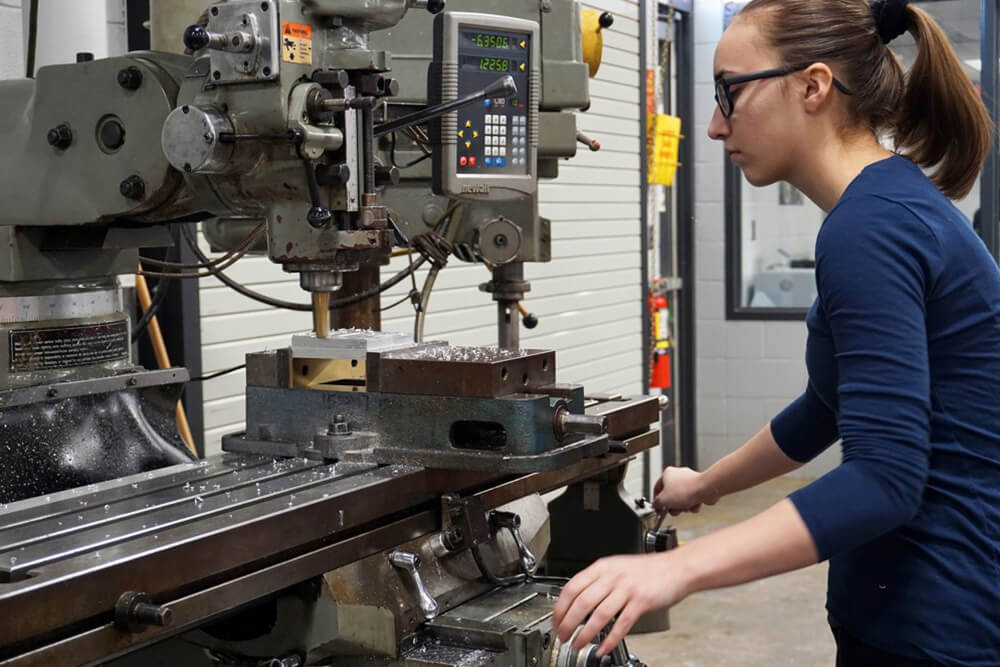Dylan Laumbach has very specific career goals. She wants to become a mechanical engineer, and she wants to learn as much as possible about the industry before she goes to college.
Laumbach, 17, and a senior at Chickasha High School, enrolled in Canadian Valley Technology Center’s Precision Machining Technology program as a means to an end. Machinists set up and operate machine tools to produce precision metal parts, tools and instruments.
That all sounded great to her. She wants to know how machinists think and what processes they use to complete their assigned tasks. She also plans to learn welding while she is in college.
“These (machining and welding) will both help me to pursue my career path,” she said.
Never mind the statistics revealing how male dominant all three of chosen pursuits are (including engineering). Machinists, or tool-and-die makers, are represented by more than 56,000 workers, according to data provided by the U.S. Bureau of Labor Statistics. Less than 1 percent are female.
“The guys push me to be just as good, and this also helps me to set an example for other girls who might be intimidated by being outnumbered in the classroom,” Laumbach said. “In the shop, I’m not treated any differently than anybody else.”
Some manufacturing experts have suggested such low numbers of women in these industries is directly related to their reputation as dirty, noisy environments. A 2014 survey conducted by The Manufacturing Institute and Deloitte found only 35 percent of Americans would encourage their children to seek manufacturing jobs, despite decent pay and upgraded factories.
Laumbach will see slightly improved numbers of women in engineering. Men outnumber women nearly 9 to 1 in this industry, according to U.S. Department of Labor data.
Laumbach believes a machining education will be a springboard to completing her other career goal.
“I chose to enroll in CV Tech, because I believed it would give me a push forward in getting a job,” she said. “This truly has been one of the best decisions I could make towards making my future brighter.”
Laumbach is among nearly a third of CV Tech students who pursue a college education after graduation. Many use the skills they acquire at CV Tech to earn considerably more than minimum wage while going to college.
“That’s the plan,” she said. “I would encourage others to also consider (CV Tech). This is an amazing place to be with helpful instructors and supportive staff. And you’ll meet people from other schools and be able to make connections that might help you later on in life. Everyone can find a class that interests them, and this will certainly help you find the career you have always wanted.”
In the meantime, Laumbach has also been filling her schedule with leadership activities. She is the SkillsUSA State Parliamentarian and attended the Washington D.C. Leadership Training Institute in September. She also participated in the SkillsUSA National Conference in Louisville last June and plans to complete her term April 19-21 by administering SkillsUSA Oklahoma Conference.
She attended numerous state events, activities and training workshops throughout her term.

